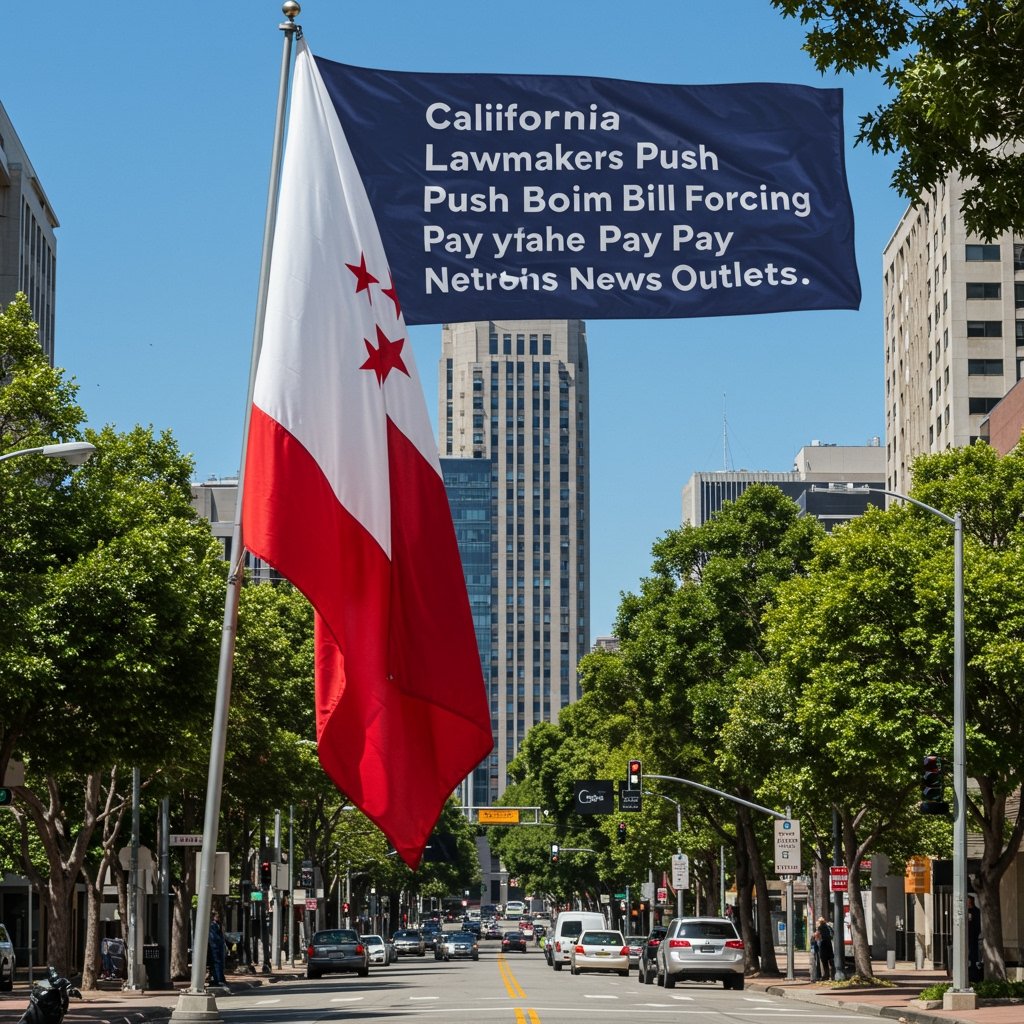California Assembly Committee Approves Bill Mandating AI Compensation for News Publishers
Sacramento, CA – In a move poised to significantly impact the relationship between artificial intelligence developers and the news industry, the California Assembly Judiciary Committee on February 17th approved AB 2050. This proposed legislation, which has quickly become a focal point of debate across the state and the nation, seeks to require developers of artificial intelligence models to either license or compensate news organizations for utilizing their content.
The bill, formally known as the California Journalism Preservation Act, asserts that the widespread use of news content by large language models (LLMs) and other AI systems for training, generating responses, and summarizing information constitutes a form of unlicensed use that undermines the financial stability of news publishers. Supporters argue that news organizations invest substantial resources – including time, labor, and financial capital – in gathering, verifying, and publishing factual information. This content, they contend, forms a critical part of the vast datasets used to train sophisticated AI models. The free use of this valuable data without compensation not only deprives publishers of potential revenue but also, according to proponents, erodes the economic foundation necessary to sustain high-quality journalism.
Proponents Argue for Sustaining Local Journalism
A coalition of news publishers, spearheaded by the West Coast Editorial Alliance, has been a primary force advocating for AB 2050. The Alliance, representing numerous California news outlets ranging from large metropolitan newspapers to small community publications, argues that the measure is not merely about extracting payment from tech companies but is, in fact, a crucial intervention needed to safeguard local journalism in an increasingly challenging digital landscape. They highlight the precipitous decline in advertising revenue over the past two decades, the closure of countless newspapers, and the resulting emergence of “news deserts” where local communities lack reliable sources of information.
The argument from proponents is straightforward: AI models benefit enormously from accessing and processing the timely, accurate, and structured information produced by news organizations. This benefit translates into enhanced capabilities for the AI systems, making them more useful and valuable. Therefore, a portion of the economic value generated by these AI models should be fairly returned to the content creators whose work makes the models possible. Proponents see AB 2050 as a mechanism to create a new revenue stream for news organizations, potentially providing a vital lifeline that could help fund essential reporting, investigative journalism, and community coverage at a time when traditional business models are under immense pressure. They frame the bill as a necessary step to ensure that those who profit from the fruits of journalistic labor contribute to its sustainability.
Opponents Raise Concerns Over Innovation and Information Flow
On the other side of the debate are powerful voices from the technology sector and civil liberties groups. Primarily represented by Silicon Valley tech firms and various advocacy organizations, opponents of AB 2050 express significant concerns that the bill could have detrimental effects on the development of artificial intelligence technology and the principles of free information flow on the internet. Their arguments center on several key points.
Firstly, they contend that mandating licensing or compensation for the use of publicly available news content for AI training could stifle innovation. AI models are often trained on vast, diverse datasets scraped from the public web. Introducing licensing requirements specifically for news content, they argue, adds complexity, cost, and potential legal hurdles that could slow down research and development in California’s crucial tech industry. Tech firms often equate the use of public web data for training to reading public information, suggesting it falls under principles akin to ‘fair use’ or is a necessary component of building foundational models.
Secondly, opponents raise concerns about the potential impact on the free flow of information. They argue that the internet’s ecosystem is built on the ability to access, link to, and summarize information. If AI models are restricted or burdened when processing news, it could limit the ways users can access and interact with news information through AI-powered tools, potentially making information less accessible or discoverable. Civil liberties groups worry about the precedent this could set for regulating the use of publicly available data.
Furthermore, opponents highlight practical challenges and potential unintended consequences. They question how compensation would be calculated, how “use” would be defined and tracked across different AI models and applications, and whether the scope of the bill is overly broad. They suggest the compliance burden could be substantial, particularly for smaller AI developers or researchers. There are also concerns that the bill could inadvertently lead to AI models avoiding news content altogether, which some argue could limit the ability of these models to provide users with accurate and up-to-date information.
The Path Forward
The passage of AB 2050 by the California Assembly Judiciary Committee on February 17th marks a significant step forward for the controversial legislation. However, the bill still faces a long and potentially challenging path through the state legislature. Having cleared the committee hurdle, the bill now moves to the Assembly floor for further debate and consideration by the full Assembly. If approved there, it would then proceed to the California Senate for committee review and a full floor vote. The legislative process allows for further amendments, negotiations, and robust debate from all interested parties.
The debate surrounding AB 2050 reflects a broader global conversation about the economic implications of artificial intelligence for creative industries and content producers. As AI technology continues to advance and become more integrated into daily life, the questions of how it should interact with copyrighted material and how value generated from that interaction should be distributed are becoming increasingly pressing. The outcome of this legislative effort in California could potentially set a precedent or influence similar discussions in other jurisdictions.
Ultimately, the fate of AB 2050 rests with the California state legislators as they weigh the competing interests of supporting local journalism, fostering technological innovation, and ensuring the public’s access to information in the digital age.



















